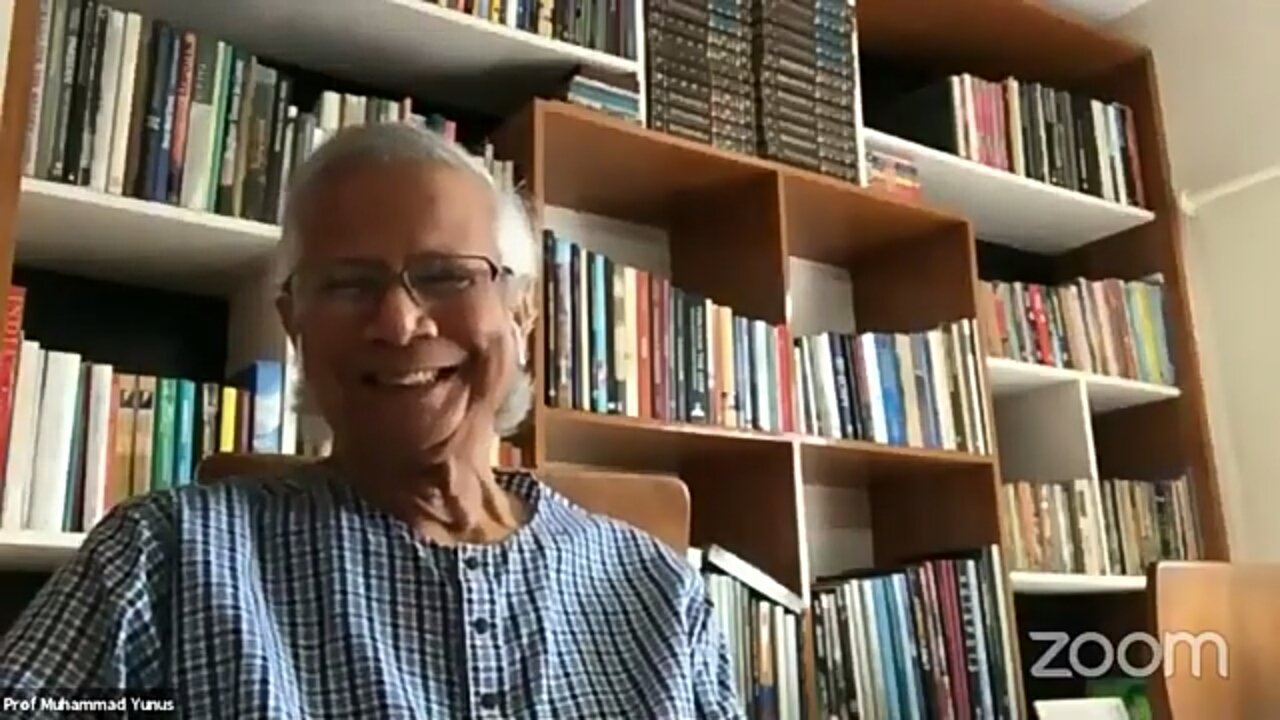Create social businesses beneficial for people in post pandemic world: Nobel Laureate, Prof Muhammad Yunus
New Delhi: Nobel Laureate Prof Muhammad Yunus said today that the ‘new world’ or the post pandemic world should see organisations create social businesses that would aim at not profiting their shareholders but beneficial for the people. Healthcare, for example, is one of the sectors that is creating such businesses. Sports is also a sector that could be utilised in creating social businesses. He added that the 2024 Paris Olympics, a 7-billion Euro project, has been completely designed as a social business model.
Addressing a FLO webinar on ‘No Going Back: Forging a New Future after COVID-19’, Prof Yunus said, “The crisis brought on by the pandemic has given us all an opportunity to pause in our tracks and reroute to a different direction – one that enables us rediscover ourselves as better human beings.” Speaking about the Yunus Social Business model that was created to tackle poverty bottom up, Prof Yunus said that it is imperative to integrate selflessness in a market dominated by selfish pursuits of profit. Institutions, in the past, have been designed the wrong way, he said. Maximising profits seem to be the only goal for businesses. Therefore, two kinds of businesses need to be created – single interest businesses and common interest or social businesses.
Speaking on his philosophy of reconstruction vis-a-vis recovery programme, Prof Yunus said that three vices, namely, global warming, extensive use of AI leading to unemployment and wealth concentration, are like ticking time bombs that should be addressed in this decade itself. This decade, according to Prof Yunus, is the last chance that humanity has for mend overs. Although, there are tremendous initiatives being made to return to how we lived before, ‘no going back’ to our previous ways is the only solution for a better world, he added.
Alluding to the recent issue of migration, Prof Yunus said that the pandemic lay bare the many societal weakness, migration being one of them. Instead of forcing the rural workforce to go to cities for either better education or job opportunities, he said, that bringing good quality education, creating jobs and providing financial services is of most importance to the rural areas. Rural economy, he added, should not just be treated as a by-product. The informal sector, Prof Yunus said, was the micro-entrepreneurial sector, the base of the entrepreneurial pyramid.
Prof Yunus said that a staggering 97% of the 9 million borrowers of Grameen Bank are women. He shared that the first borrower of Grameen Bank, a lady who needed money to buy a single piece of bamboo to make a table, is the memory that brings a smile to his face.
Ms Jahnabi Phookan, National President, FLO, concluded the session by saying that resonating Prof Yunus’s philosophy of creating and thriving on local ecosystem, all 17 chapters of FLO are working towards creating sustainable livelihood for the rural workforce, with a special focus on women- led enterprises by adopting a village each. She also informed that FLO has been working with several implementation partners that are helping them reach the grassroots
Ms Rinku Mecheri, Chairperson, FLO Chennai also shared her perspective. Ms Ujjwala Singhania, Sr Vice President, FLO, delivered the vote of thanks.

